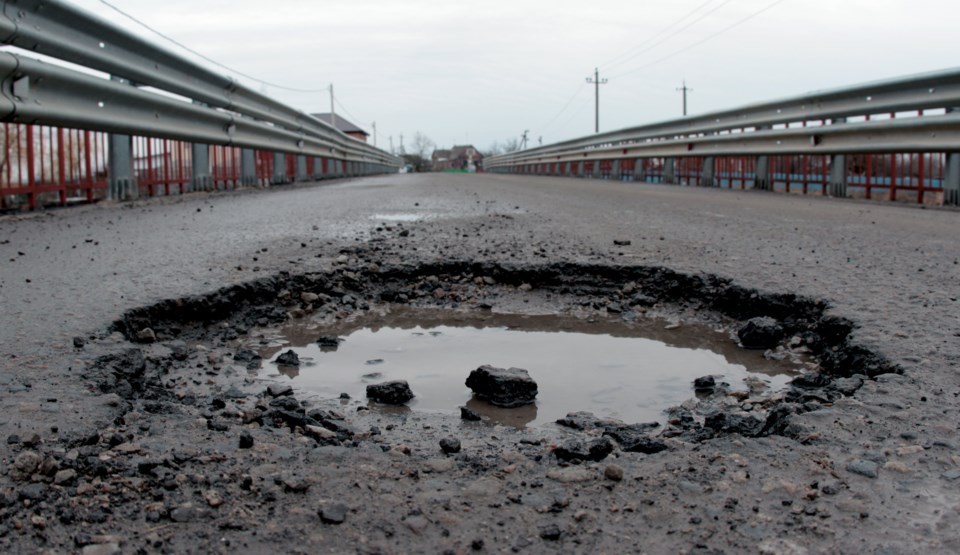Greater Sudbury's roads have deteriorated badly over the last decade, and the city hasn't been spending nearly enough to maintain them, says a new audit report from Auditor General Ron Foster.
In particular, Foster's audit found the condition of all roads has gotten substantially worse since 2007, especially local and collector roads. He used what's known as the Pavement Condition Index (PCI), which evaluates the condition of the road based on roughness, rutting and structural condition on a scale of 0-100, with 100 being a brand-new street with no problems.
On that index, Foster said local roads — the city's less busy roads — had a score of 46.3 out of 100 in 2016, compared to 63 in 2007, a drop of 27 per cent. Collector roads — which are busier than local roads — dropped from a score of 68.1 in 2007 to 48.7 in 2016, a 28 per cent drop. And the even busier arterial roads dropped from a score of 72.8 to 59.6 in the same time, or down 18 per cent.
One of the problems, Foster wrote, is the city uses another index to prioritize repairs, the overall condition index (OCI).
“The OCI is determined by the pavement condition index, safety considerations, timing of water and waste water infrastructure projects, economic development initiatives and extent of road congestion,” he wrote in his report. “This approach attempts to maximize the city’s return on investment on road renewal projects by extending the useful lives of roads which are in average condition. The city also employs crack sealing programs to extend the useful lives of roads.”
The problem is that the OCI method prioritizes work on streets before there's a major issue with the roads. That makes some sense, since it extends the useful life of the road at a lower cost. But the “unintended consequence,” Foster says, is that it often doesn't take into account roads that are severely damaged.
So he's calling on the city to incorporate the PCI into its current methods of prioritizing “to address the continual deterioration of roads, use a revised OCI measure that consists of PCI, safety factors and the timing of water/waste water initiatives to prioritize rehabilitation and reconstruction projects,” Foster writes. “Prepare separate business cases to justify additional spending on roads projects that have economic benefits or other merits.”
He also recommended updating the way the city handles pothole reports. Currently, staff fill out reports manually on paper, “without reference to their frequency, completeness or coverage.”
Foster recommends exploring the use of electronic devices that would not only make it easier to get that information, but would help ensure the city is adhering to the minimum maintenance standards set out by the province that details how quickly the pothole has to be addressed.
He also recommended staff initiate a study on the best way to address the city's pothole problem, including looking at new equipment, materials and processes.
Read Foster's full audit here. It will be presented at the April 16 audit committee meeting.
